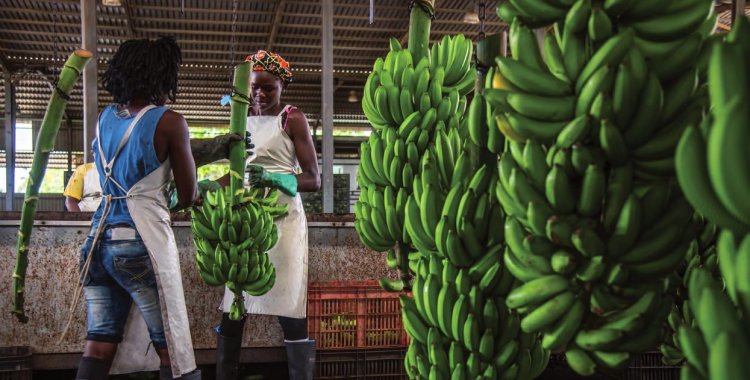According to the National Consumer Price Index (IPCN) Quick Information Sheet, the variation in the last 12 months - between October 2019 and September this year - stands at 23.82 percent, the highest accumulated value since November 2017, when this indicator reached 24.70 percent.
The Leisure, Recreation and Culture class registered the biggest price increase, with 3.30 percent, followed by Miscellaneous Goods and Services, with a growth of 2.27 percent, Food and Non-Alcoholic Beverages, with 2 , 03 percent, and Apparel and Footwear, with 1.75 percent.
The Food and Non-Alcoholic Beverages class was the one that, according to INE, "contributed most to the increase in the general price level", being responsible for 0.98 percentage points of the increase of 1.79 percent in September.
Year-on-year, the increase of 1.79 percent in September this year represents an increase of 0.34 percentage points compared to the same period last year.
Since the beginning of the year, inflation in Angola amounts to 18.04 percent, a value similar to that recorded in the first nine months of 2017, when it reached 18.12 percent. Compared to 2019, this represents an increase of 6.6 percentage points compared to the 11.44 percent then registered.
According to INE, the provinces that registered the greatest increase were Lunda Norte (2.11 percent), Luanda (1.91 percent), Cuando Cubango (1.85 percent) and Malanje (1.72 percent) percent).
On the other hand, the provinces with the least variation were Cunene (1.30 percent), Lunda Sul (1.34 percent), Benguela (1.41 percent) and Cabinda (1.44 percent).
In early September, the rating agency Fitch predicted a recession of 4 percent in Angola and a rise in inflation to 24 percent during this year.
"The contraction in the oil sector, combined with the lack of liquidity in dollars, will keep Angola in the fifth consecutive year of recession, with a contraction of 4 percent and an acceleration of inflation to 24 percent this year, well above the average of countries with a B grade of 4.8 percent, "the agency then said, adding that the economy" continues to be limited by the high level of dependence on raw materials ".
Due to the covid-19 pandemic, there was a reduction in the price of a barrel of oil, which led the Member States of the Organization of the Petroleum Exporting Countries and their partners to reduce production in order to balance the price of oil. barrel of oil.







